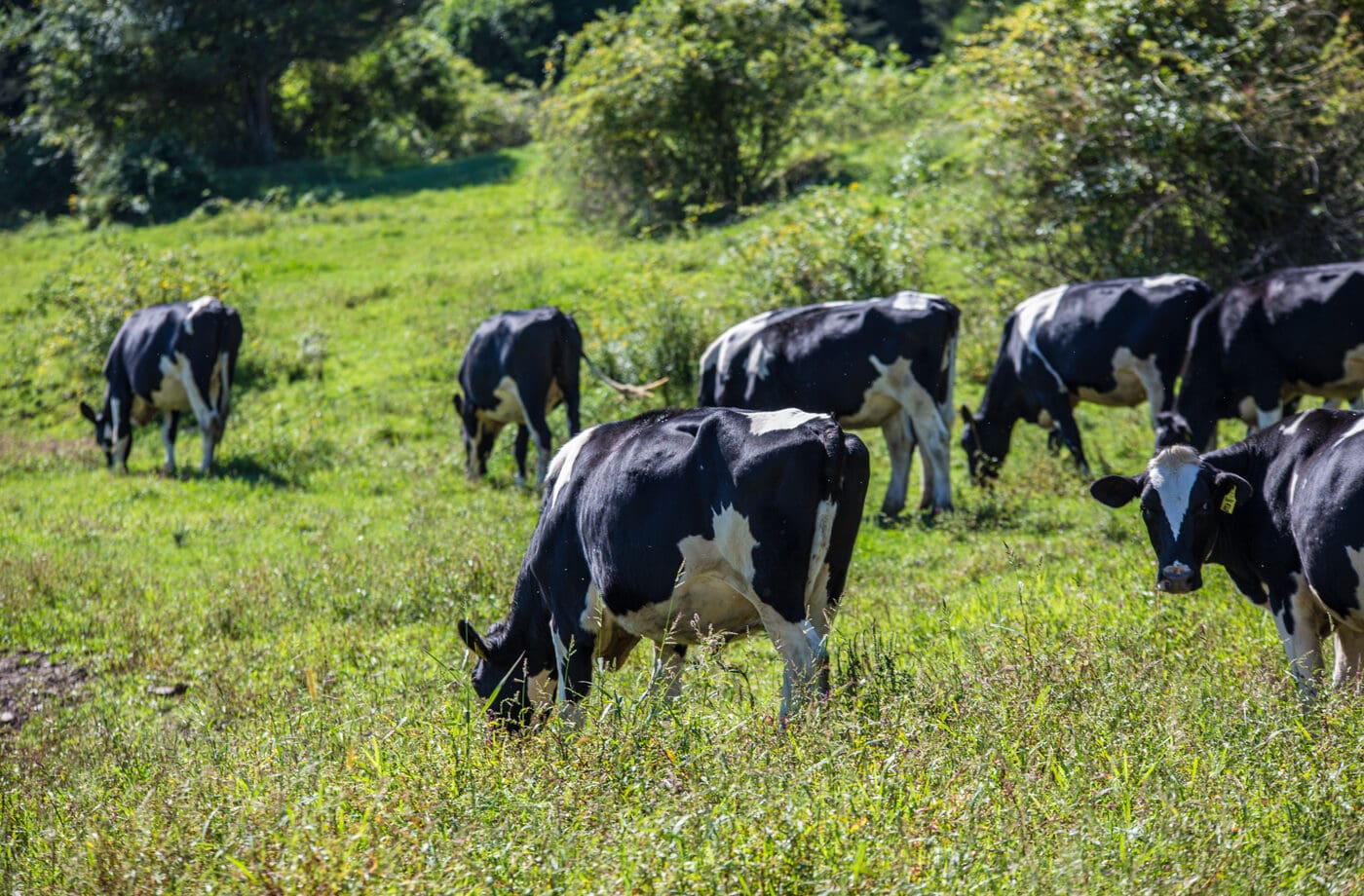
About Earth Day
Earth Day is celebrated on April 22. This annual event celebrates and honors the ways individuals care for our land, air, and water. It also raises awareness of the need to protect our natural resources for future generations. Dairy farmers are leading the way in sustainability and have an important story to tell on Earth Day.
2023 theme
This year’s theme is “invest in our planet.” It highlights the importance of dedicating our time, resources, and energy to climate change and sustainability. Investing in our planet is an important step in creating healthy and happy communities across the northeast and beyond.
Why we need to tell the dairy story this Earth Day
Every day is Earth Day for farmers, and this national event is an opportunity to remind consumers of the important work you’re doing on your farm and how the industry is addressing sustainability. This topic continues to be a top concern among consumers, who may have misconceptions about dairy’s impact on the environment and care not only about where their food comes from, but how it’s made. Research shows that most consumers would change their purchasing habits to reduce their impact on the environment. By sharing tangible examples of the work you’re doing, you can help build trust and sales.
Sample social media messages
- Just like you recycle in your home, dairy farmers recycle too. Water on the farm can be used up to four times, and our cows are the ultimate upcyclers. 🐄 They’re able to consume parts of foods humans can’t, like citrus pulp, spent brewers’ grain, and more. This keeps cows happy and reduces food waste.
- Dairy farmers are environmental stewards, and we take a proactive approach to sustainability. We continue to embrace new technologies to help us tend to our land and water with care. Producing a gallon of milk has 19% less greenhouse gas emissions than it did in 2007.
- For dairy farmers, caring for the land is an important part of our work. We rely on the sun, air, water, and soil to help us produce a safe, nutritional product for you to enjoy 🥛🐄
- Despite what you may have seen in sensational headlines and documentaries, producing dairy has a surprisingly small environmental footprint, being responsible for just 2% of all U.S. GHG emissions. By comparison, transportation as an industry in the U.S. accounts for 28% of GHG emissions.
- On our farm, a digester is one tool we use to reduce waste. Digesters help break down cow manure or food waste and create biogas, which can be used for electricity, heat, compressed natural gas, and even vehicle fuel. Watch how digesters turn waste into a product we can use: https://youtu.be/jets9VDMT-E
- While the dairy industry has made progress, there’s certainly more work to be done. The dairy industry’s Net Zero Initiative will optimize water use while maximizing recycling, improve water quality by optimizing utilization of manure and nutrients, and achieve greenhouse gas neutrality by 2050. These environmental stewardship goals are just one way the dairy industry is leading the way in sustainability. Learn more about the 2050 U.S. Dairy Sustainability Goals: https://www.usdairy.com/sustainability/environmental-sustainability/net-zero-initiative
- Dairy farmers care about the planet – just like you. Learn more about how farmers are protecting our land, water, and soil: https://www.newenglanddairy.com/sustainability/
- One cow can produce up to 100 pounds of manure each day, so responsible manure management practices are important for every farmer. Watch this video to see how dairy farmers ensure manure stays on their fields and out of our waterways: https://youtu.be/QRpvvVcg4eA
- Healthy soil and clean water are the foundation of our work. 🌱 There are several environmentally friendly practices to improve soil health and keep our rivers and lakes clean, including planting cover crops and vegetative buffers. Learn more ➡️ https://www.newenglanddairy.com/carbon-smart-dairy-farming/
The above messages are recommendations. You can adapt them to your voice and add your own farm stats or information. If you’re doing something cool on your farm, like taking cardboard from your local transfer station to shred and mix in with your bedding or recycling food waste from your local school district, share that story.
Recommendations for visuals to accompany your messaging
- Photos and videos depicting sustainability practices, cows, or other views from your farm. If you want to highlight how long your family has been caring for the land, you could share a family photo or other “historical” photos.
- Videos that educate consumers on sustainability topics. Visit New England Dairy’s YouTube channel to find just the right one.
- Infographics (just make sure they’re up to date). @SustainableDish is often posting infographics that address misconceptions about animal agriculture’s environmental impact.
- Be sure you have permission to use the image or video you are sharing, and always give credit to the original creator if you share someone else’s work.
Hashtag options
#EarthMonth (use any day in April)
#EarthWeek (use April 16-22)
#EarthDay (use on April 22)
#InvestInOurPlanet (use any time)
Tag New England Dairy
You can tag New England Dairy in your content using @NewEnglandDairy.
Let’s keep the conversation going
New England Dairy is here to help you tell your dairy sustainability story. There are more opportunities beyond social media messaging this Earth Day. Our team can help you write a letter to the editor or op-ed for your local newspaper, or we can support you with other ideas you may have to tell your story. Contact Farmer Relations Manager Elicia Pinsonault at epinsonault@newenglanddairy.com or Farmer Relations Specialist Jennifer Schenkel at jschenkel@newenglanddairy.com for more information.
